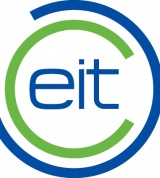European universities and companies form €2bn community to promote health
by Sam Wong

A consortium of 144 European companies, research institutes and universities has won EU backing to promote healthy living and active ageing.
The group has been selected as a new Knowledge and Innovation Community (KIC) by the European Institute of Innovation and Technology (EIT), an independent EU body set up in 2008 to spur innovation and entrepreneurship across Europe to overcome major challenges. KICs bring together leading universities, research labs and companies to form dynamic cross-border partnerships that develop innovative products and services, start new companies, and train a new generation of entrepreneurs.
 The InnoLife consortium, which will be led in the UK and Ireland by Imperial College London, includes the universities of Oxford and Cambridge, as well as major companies such as Procter & Gamble, Intel, Medtronic and AstraZeneca. The consortium has been designated as a new KIC called EIT Health. With an anticipated total budget of EUR 2.1 billion, it is one of the largest public funded initiatives for health worldwide. The EIT will invest around EUR 80 million annually to fund new collaborations, education and projects over the initial seven year period.
The InnoLife consortium, which will be led in the UK and Ireland by Imperial College London, includes the universities of Oxford and Cambridge, as well as major companies such as Procter & Gamble, Intel, Medtronic and AstraZeneca. The consortium has been designated as a new KIC called EIT Health. With an anticipated total budget of EUR 2.1 billion, it is one of the largest public funded initiatives for health worldwide. The EIT will invest around EUR 80 million annually to fund new collaborations, education and projects over the initial seven year period.
Other partners include Roche Diagnostics, Novo Nordisk, Sanofi Aventis, Siemens, Philips, ATOS, Heidelberg University, Technische Universität München, Université Pierre et Marie Curie, Karolinska Institute, KU Leuven, Fundació Institut de Bioenginyeria de Catalunya and many more.
Over the next seven years EIT Health partners will develop innovative products, education programmes and services addressing the challenge of demographic change in Europe.
Europe-wide network
To initiate and coordinate the numerous projects, the consortium partners will found a new company headquartered in Munich, Germany. Regional activities will be organised by co-location centres (CLC) in Heidelberg, Barcelona, London, Paris, Rotterdam and Stockholm, and the InnoStars community with partners in Hungary, Poland, Slovenia, Croatia, Portugal and Wales.
Professor Elio Riboli, Director of the School of Public Health at Imperial College London and chair of the InnoLife executive committee, said: “The new EIT Health programme will provide exceptional opportunities to translate recent scientific advances in understanding of metabolic, genetic and behavioural causes of chronic diseases into innovative products, diagnostics, medications and social and health services that will enhance population health and patient diagnoses and treatment across Europe and beyond.”
Imperial has been the leading institute in the UK-Ireland co-location centre, helping to build the InnoLife consortium for more than five years. Partners include the Universities of Oxford, Cambridge, Newcastle and Trinity College Dublin, the West Midlands Academic Health Science Network (AHSN), Intel, Medtronic, Procter and Gamble, Astra Zeneca, Nuffield Health, Healthbox, Imperial College Health Partners, Oxford AHSN, North West Coast AHSN, OBN, Abbvie Ireland, and Red and Yellow Care.
EIT Health will contribute to increasing the competitiveness of European industry, the sustainability of the healthcare systems and will ultimately improve quality of life for the European population. The partnership will promote entrepreneurship and develop innovations in healthy living and active ageing by delivering products, concepts and services, including educational programmes to train the workforce of tomorrow. The critical mass of partners within EIT Health aims to reduce the time-to-market for added-value health products and services.
Gordon Graylish, Vice President, Sales and Marketing Group and General Manager Enterprise Solution Sales, Intel Corporation said: “Global ageing requires a sea change in how we think about care. The transformation required for healthcare institutions, government policies, providers and patients cannot be underestimated. We are very pleased to be a part of EIT Health which is bringing together all the stakeholders to co-create solutions for our future care needs.”
Dr Ursula Redeker from Roche Diagnostics GmbH, the key coordinating partner, said: “We are thrilled to win the EIT’s call. Our partnership’s goal is to promote entrepreneurship and develop innovations in healthy living and active ageing, providing Europe with new opportunities and resources. We will achieve this by delivering products, services and concepts that will improve quality of life and contribute to the sustainability of healthcare across Europe.”
After signing a framework agreement with the EIT, EIT Health expects activities to start by mid-2015.
Article text (excluding photos or graphics) © Imperial College London.
Photos and graphics subject to third party copyright used with permission or © Imperial College London.
Reporter
Sam Wong
School of Professional Development